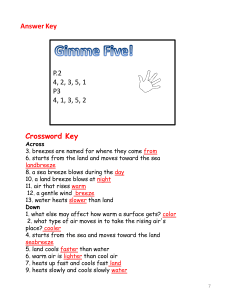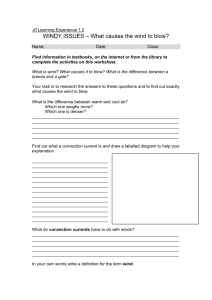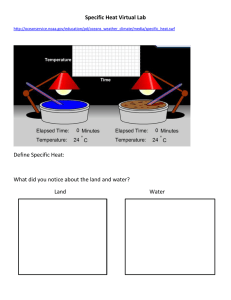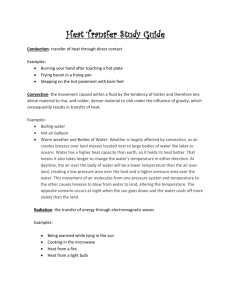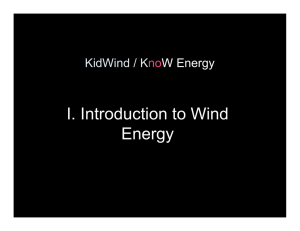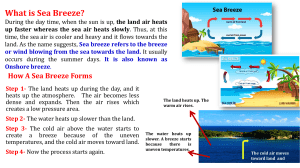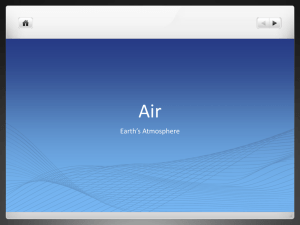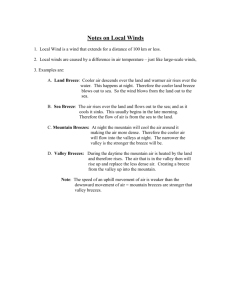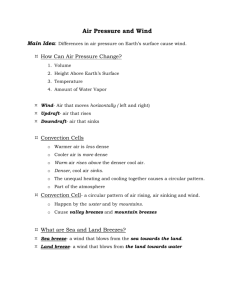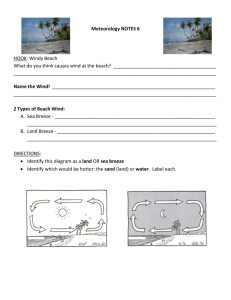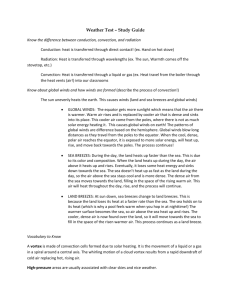Land and Sea Breeze
advertisement
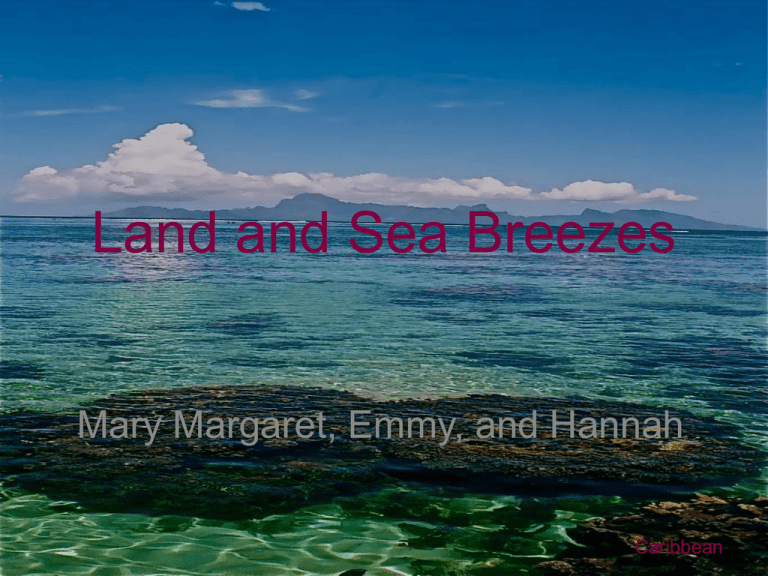
Land and Sea Breezes Mary Margaret, Emmy, and Hannah Caribbean How A Sea Breeze Forms • • • • Step 1- The land heats up during the day, and it heats up the atmosphere. The air becomes less dense and expands. Then the air rises which creates a low pressure area. Step 2- The water heats up slower than the land. Step 3- The cold air above the water starts to create a breeze because of the uneven temperatures, and the cold air moves toward land. Step 4- Now the process starts again. The land heats up. The warm air rises. The water heats up slower. A breeze starts because there is uneven temperatures. The cold air moves toward land and becomes warm. Canary Island How A Land Breeze Forms • • • • • Step 1- At night the land cools quicker than the water. The air above the land becomes less dense and contracts. Step 2- The air above the land becomes more dense. Step 3- That forms a high pressure. Step 4- This causes a breeze to start and go toward the ocean. Step 5- Now the process starts again. The land cools quicker than the water. The cold air from land moves toward the water. Now the cold air becomes warm. The water is warmer than the land because it holds its heat. Canary Island When Do Land and Sea Breezes Form? • Sea breezes often occur on warm spring and summer days. They occur when the temperature of the land is higher than the temperature of the water . • Land breezes often occur at night, when the temperature of the water is warmer than the temperature of the land. he water holds it heat better than land. Ocean and Sand Sunny Rosemary Beach Mediterranean Sea When Are Land and Sea Breezes the Strongest? • Land breezes are strongest when the land is cool and the water is warm. Mediterranean Sea You can see that the wind is very low because no one’s hair is being blown. • Sea breezes are the strongest when the land is warm and the water is cooler. Mediterranean Sea You can see the flags that are on the coast flapping back and forth. Conclusion • Land breezes occur when the wind blows toward the sea. • Sea breezes occur when the wind blows toward the land. Bibliography • http://ww2010.atmos.uiuc.edu/(Gh)/guides/mtr/fw/sea/htg.rxml • http://www.usatoday.com/weather/wseabrze.htm • http://science.jrank.org/pages/3800/Land-Sea-Breezes.html
